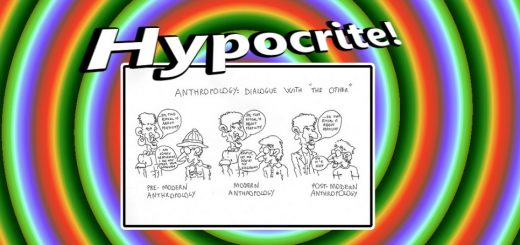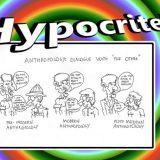The Success of Short-Story Cycles

Phan’s We Should Never Meet was the most captivating book I’ve read in this class. Besides for the fact that I returned from Viet Nam a week before school, and that I am familiar with Vietnamese-American culture around the Puget Sound, Aimee Phan’s writing style really took the cake on this one. The success of this book, in my experience, came from doing the opposite of what Frank Chin did in his book, Donald Duk. Phan showed us what we should think without directly saying it.
The biggest issue I had with Donald Duk was the narrative style. It was obviously didactic; Chin had a message to share about the Chinese-American experience, heritage, identity, and historical erasure. But it was difficult for me to ignore the painfully slow lecturing narrative he used to execute his messages. Aimee Phan, while addressing some of the same topics, did so in a much more effective style. This is crucial if you want your message to be taken seriously.
I attribute the success of this book to the stylistic narrative Phan used. We Should Never Meet was written in the short-story cycle style. This style revolves (literally) around several short stories, each with seemingly unconnected characters. The beauty of these stories is that they give you just enough of a glimpse into their lives to become extremely powerful on the emotional level. Particularly, for didactic purposes. I’m sure anyone who’s read this book can relate to that feeling of “ohhhhhhhhhhhhhhhhhhhh” when you realized what the title of the book means. Clever.
Instead of telling, Phan “showed” the audience all the struggles that the Vietnamese, and subsequently, the Vietnamese refugees, went through during and after the events of the Vietnam-American war. The reason this novel struck me so hard comes down to Phan’s ability to make the reader do the work. While Chin’s novel was written with a younger audience in-mind, Phan’s novel felt easier to relate to for my age group. Many of the main characters were either in high school, about to go off to college, or still in their twenties. Peter Bacho’s Dark Blue Suit also gave me the same impression, although the difference for me was my familiarity with Vietnamese culture as opposed to Filipino culture.
As an avid reader, I always appreciate when a novel makes me do extra work. I find it a little condescending when the author just comes out and tells me what he wants me to think. If I wanted to understand the themes in the book, it would’ve been much faster to just read up on the topics. Probably equally as fast for me to grasp the concepts. Don’t get me wrong, my rant is not aimed towards the content of Chin’s messages. Also, I understand that Chin’s book was intended for younger audiences. But there are many other books who became very popular with all ages; despite being written for the youth. Harry Potter, I’m looking at you.
Phan, on the other hand, makes the reader draw connections between each of the different experiences of Vietnamese immigrants, which made my journey more memorable and entertaining to read. The similarity between the styles of We Should Never Meet and well-written ethnographies drew me in one-hundred percent. In fact, it’s almost like Phan’s spin on the short-story cycle genre was originally a piece of ethnographic literature. I wouldn’t be surprised if that’s where she drew from for inspiration. She didn’t include any research or theoretical frameworks to connect the stories with larger issues, but she didn’t need to. The writing spoke for itself.
The themes of home, and never truly belonging ran through each and every story. Even for someone who goes to the Vietnamese market in Tacoma once a month with his wife, I still learned new things about the Vietnamese-American culture. Underground topics such as Vietnamese gang culture and robbing “their own people” was one of these new insights. The way Phan narrates each event as it plays out, adding just enough context to make the reader think critically was incredibly effective. This novel will certainly set the bar high for creative writers in the academic setting.
The last thing I would like to touch on is the relationship between this book and tomorrow’s post. Identity is a huge theme in We Should Never Meet, as it is in all of the books we’ve read in the class so far. However, Phan fights against the rhetoric that members in a group share an individual, collective identity. There is not one answer to the question of “what defines a Vietnamese-American?” Phan demonstrates that this community is just as diverse as every other community.
No matter who you are or where you come from, you are bound to find something in this novel you can relate to; whether it be the stories about gang culture, going off to college, returning to the place you once called home, or having trouble fitting in. This book has it all. Phan elegantly illustrates the idea that, despite our differences, people experience the same shit despite what they’re labeled as. We are all human, wandering through life until our time runs out. And that, my friends, is an important message in this day and age.















Thank you. Thank you very much for sharing my mobile video site with you.
Su tesisat hizmetleri, su kaçak tespiti, musluk tamir ve klozet tamiri için bizi arayabilirsiniz. Su kaçak tespiti, musluk tamiri, klozet tamiri ve daha fazlası için bizi arayın.
Detaylar: Tesisatçı
D’abord Vous avez un super blog .Des sujets plus similaires m’intéresseront. Je vois que vous avez des sujets très utiles, je vais toujours vérifier votre blog CIAO
https://www.casinositekim.com/
Deloitte’s studies in the financial industry have shown around 80% of potential beneficiaries plan to look for a new financial advisor once they receive their inheritance. While there’s no guarantee this trend will hold true within insurance, if it does, this would be a large shakeup and a large opportunity for savvy agencies and producers to go after a whole new client base, according to Beinsure Media.
Life insurance costs for millennials plus types of insurance most important to young people. 26% of millennials had trouble affording their insurance, and 25% are already worried about covering their insurance premiums in 2024.
Two of the biggest challenges facing insurers struggling to earn millennials’ business are that this customer segment does do not want to buy from a limited option set or buy without fully understanding the value of what is being offered.
The fast-growing millennial population, roughly 72 mn in the United States – about 25% of the overall population, is a hot topic in boardrooms and executive discussions.
Life insurance was ranked the fourth most important. However, millennials admitted they have refrained from getting life insurance due to the higher costs of other types of insurance.
This is a compelling breakdown of the shifting mindset among millennials when it comes to financial planning and insurance. The data clearly shows that millennials are open to change but only if they see real value and flexibility in the offerings. With such a large segment of the population expressing concerns about affordability and transparency, agencies that can communicate benefits clearly and offer diverse options will stand out. It’s also an excellent time for a forward-thinking Texas insurance agency Houston to step in and tailor solutions specifically for this demographic, focusing on education, affordability, and trust-building. The opportunity is definitely there for those willing to evolve with the market.
Thank you for your high-quality article. I hope the article will be shared widely to contribute to the development of this field. 77bet.football is always ready to bring you the best entertainment experiences.
hgh wachstumshormone kaufen
References:
pads.jeito.nl